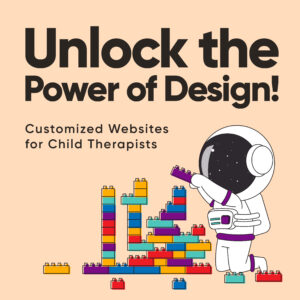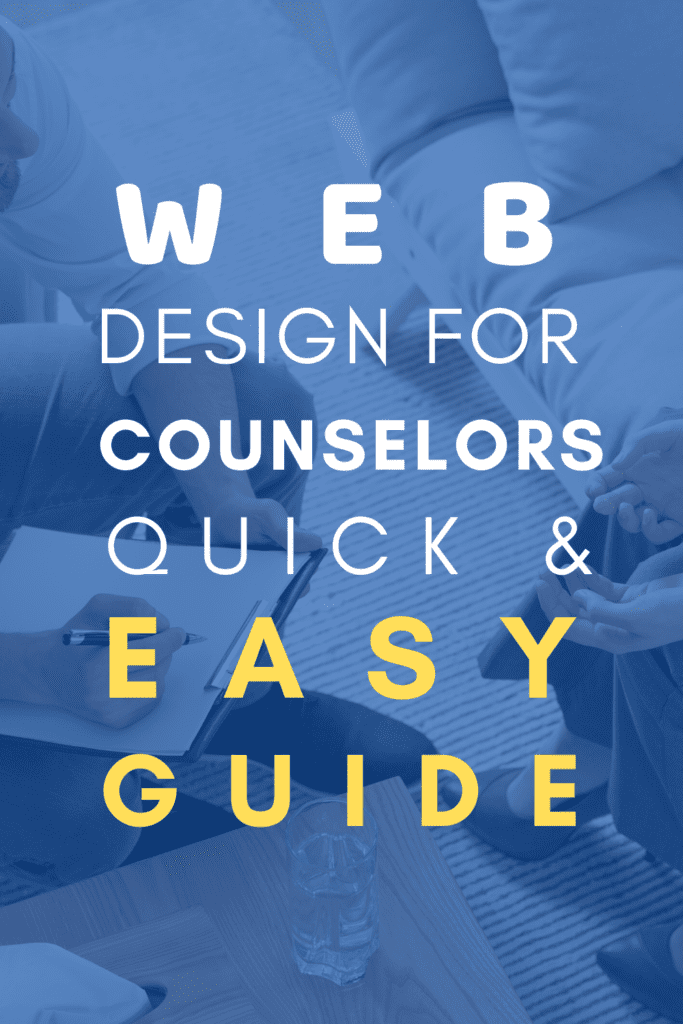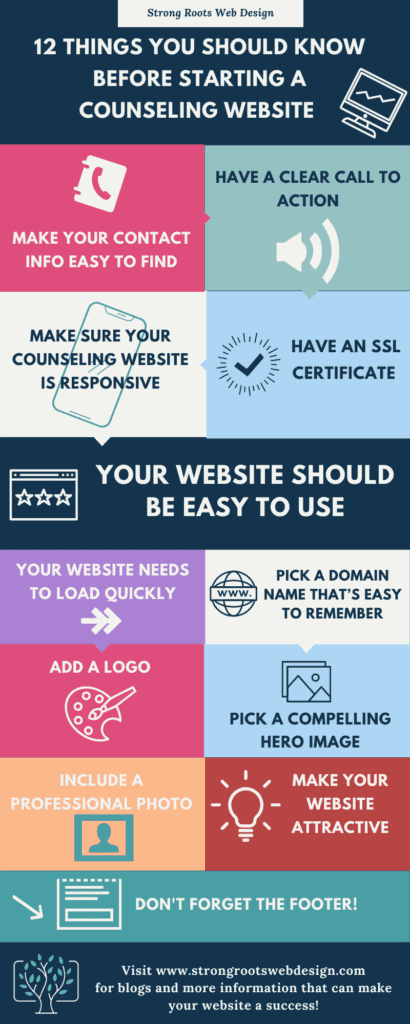
How to Choose Your Therapy Niche and Get More Clients
“If you’re talking to everyone, you’re talking to no one.” - Marie Forleo

If you’ve ever come across that one-liner above, that is the entire reason why you should be niching down for your private practice.
You see, whether you’re a new therapist or you’ve been around for quite some time now, it’s important that you have a space in the industry for which you are known. Otherwise, you’ll blend into the background as a generalist, competing for everyone’s attention just like everyone else. And we both know what happens next. You won’t be getting too much traction your way.
Let’s rephrase that: Having a therapy niche and working on being known in that space is one of the best ways for you to get MORE CLIENTS for your private practice.
But (and this one’s really important). . . How exactly do you choose a therapy niche for yourself?
Choosing your own niche

With so many therapy niches to choose from, it can be quite confusing to choose one that really aligns with your expertise AND has an existing demand in the market. So let’s go through the niching down process step by step, shall we?
First things first, you have to truly understand what a ‘niche’ is. For starters, a niche is not necessarily the same as a specialization.
For example, you may specialize in cognitive behavioral therapy or somatic processing, something that a fellow therapist would understand. But your non-therapist clients would have little to no idea as to what that specialization means. So they wouldn’t really be attracted to what you have to offer them.
But if you say, ‘I’m a therapist for breast cancer survivors.’ Or, ‘I’m a therapist for young professionals who are anxious about joining the workforce for the first time,’ then that will draw you more clients.
Therefore, your therapy niche defines who it is that you want to serve as a therapist.
Here are some questions for you as you try to identify your niche:
- What age group do you prefer to serve?
- What specific set of problems do you want to address?
- What do you do best as a therapist?
- What lights you up as a therapist?
- Who is your ideal client?
- What solution can you offer to your target clients?
- What type of clients do you not want to work with?
- Is there a demand in the market you want to serve?
Asking these things will help you to zero in on a sector of the population that you want to serve.
Some therapy niches to choose from
Still not sure what your therapy niche is? Don’t worry. Here are some ideal clients you can choose from as you try to figure out which niche you want to serve.
- Young professionals
- Empty-nesters
- Orphaned children
- Parents of children with special needs
- War veterans
- Immigrants
- Newlywed couples
- Former tobacco users
- Women of color in the coaching industry
- Indigenous students
Of course, the list of therapy niches can go on indefinitely, but the sample target clients presented above could hopefully give you an idea as to how you’d like to position yourself in the industry.
Here are some related articles you might find helpful:
- How to Create Effective Taglines For Your Therapy Practice
- Quotes for Therapists – Inspirational and Uplifting Quotes for Therapists
- Finding Joy in Your Practice: 4 Things to Learn from Donald Altman
- 10 Therapist Podcasts You Should Be Listening to in 2021
- Eight Questions to Ask Yourself When Starting a Psychology Private Practice

I already have a therapy niche. What’s next?

Congratulations! You’ve finally nailed your ideal client avatar. Now it’s time for you to get to work and market yourself to your target clients. BUT before that, you need to get to know your ideal clients better.
And by “know”, you need to understand the following about your target market:
- Their likes and dislikes
- Their pain points
- Their communication patterns (slangs they use)
- Their goals and aspirations
The goal here is for you to craft a custom-made offer that will really resonate with them and make them wanna book a session with you the moment they find you online.
After identifying these things, determine how exactly you can help them given your skills as a therapist. This is where your “I help” statements come in. These statements follow a pretty simple formula:
I help + <specific target market> + <your solution to their problem>
For example:
“I help young professionals living in Illinois overcome work-related stress so they can find joy and meaning in their current job roles.”
Or if you feel that the “I help” statement sounds cliché, you can rephrase the statement above and describe yourself this way:
“I’m the go-to therapist for young professionals in Illinois who are struggling to find joy and meaning in their current job roles.”
However you word your job description, all that matters is that you are being as specific as possible.
Remember: It doesn’t hurt to niche down. In fact, the more specific you are with who you want to serve, the easier it would be for you to stand out and attract the right people to start working with you.
Establishing yourself as an expert

Settling for a specific therapy niche is just the first step you need to take to get yourself a steady stream of clients for your private practice. What comes next is you taking the right measures so you are seen as the expert in your field. That involves getting your digital marketing strategies right and having a solid business model in place.
One of the best ways for you to establish your expertise in your therapy niche is by making sure that you have a professional therapy website built with your target audience in mind.
By ‘professional’, we mean that it’s the kind of website that assures your prospects that you know what you are doing and that you can actually give them the solution you’re offering.
The best websites are those that convert visitors into leads and into paying clients. So if your website is not giving you the results you need for your practice, consider revamping your site.
If you don’t have a website yet, then it’s time for you to build one! (Check out these beautiful therapy websites for inspiration)
Not feeling techie? No problem. Book a free consultation call with me today and let’s talk about how I could help you build your very own therapy website!
Related Reads:
- User-Friendly Website Templates For Therapists
- Therapy Websites: Secrets to Success – Therapist Websites
- Using a Therapist Directory: The Definitive Guide – Therapist Websites
- Therapist Websites: Custom or Template?
- What You Need to Know About Teletherapy for Your Practice
- 31 Engaging Content Prompts For Your Therapy Biz
- Launch Your Therapy Business Success with This 4 Step Marketing Plan
- Your Therapist Logo: The Ultimate Guide – Therapist Website Design
- Therapist Logo Inspiration – Find Inspiration in the World Around You!
- Counseling Practice Names For Your Own
Did you like this post? Share it!
Related Reads for Starting A Therapy Business
- Counseling Practice Names for Branding and Website
- How to Start a Therapy Practice Online- How To Offer It Successfully
- How to Choose Your Therapy Niche and Get More Clients
- Are Paid or Free Therapist Directories Worth It? A Definitive Guide
- How to Create A Therapist Directory Listing that Gets You Results
- What You Need to Know About Starting a Telehealth Private Practice
- Importance of Getting Professional Design Services for Counseling Websites
- 31 Engaging Content Prompts For Your Therapy Biz
- Branding Your Mental Health Private Practice
- Your Therapist Logo: The Ultimate Guide
- Quotes for Therapists – Inspirational and Uplifting Quotes for Therapists
- 10 Therapist Podcasts You Should Be Listening to in 2024
- Starting a Private Practice in Counseling!
- 12 Things You Should Know Before Starting a Counseling Website
- Finding Joy in Your Practice: 4 Things to Learn from Donald Altman
- Therapist Logo Ideas – Find Inspiration in the World Around You!
- Eight Questions to Ask Yourself When Starting Private Practice in Psychology
Need any of the following? Contact us!
Here are some Sample Websites We’ve Created:
Check out our Portfolio for more!
Hi! I’m Sarah.
I help counselors and therapists have a bigger impact on the world through better client connection. I do this by creating beautiful visuals and strategically designed websites.

















